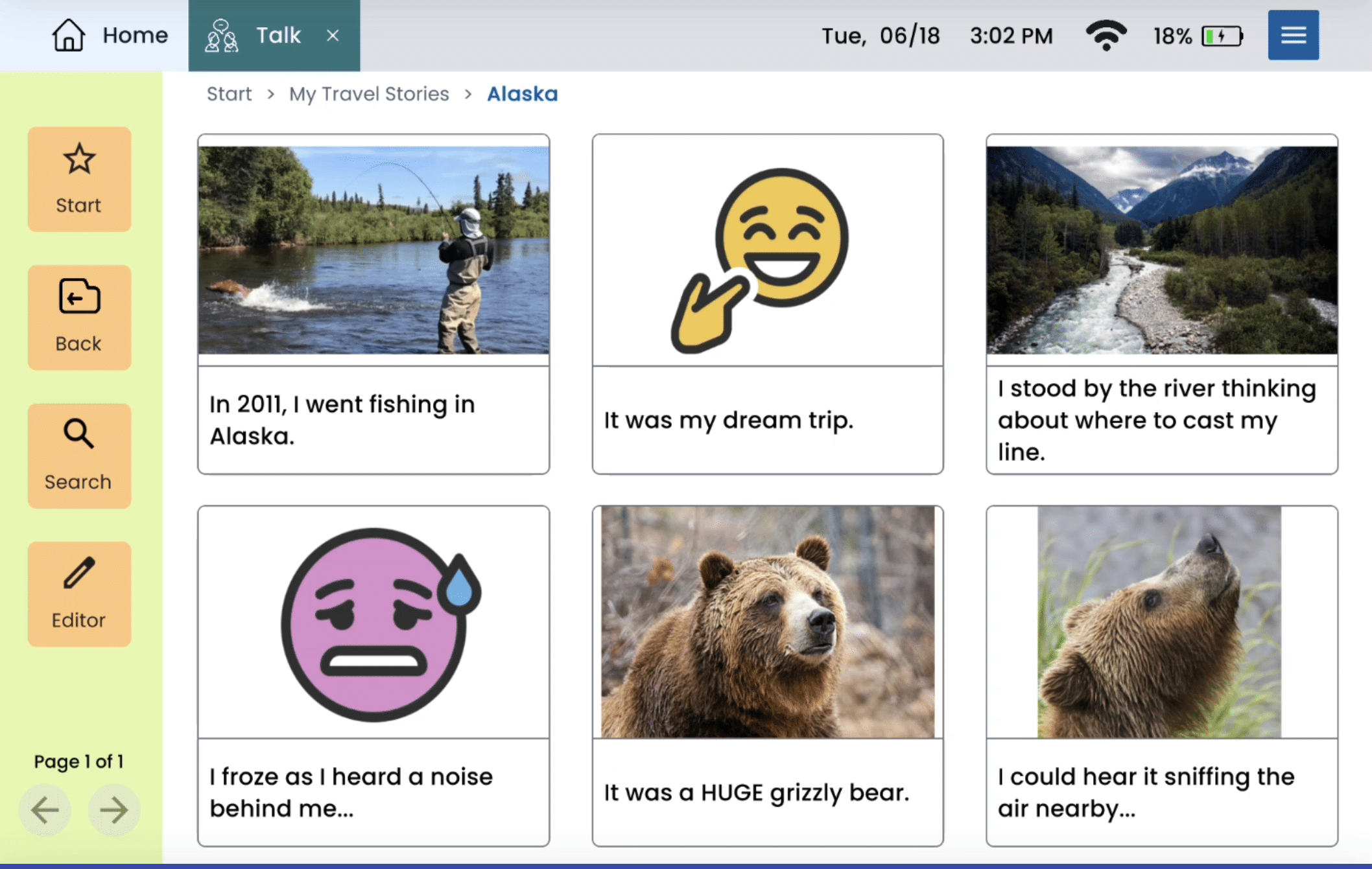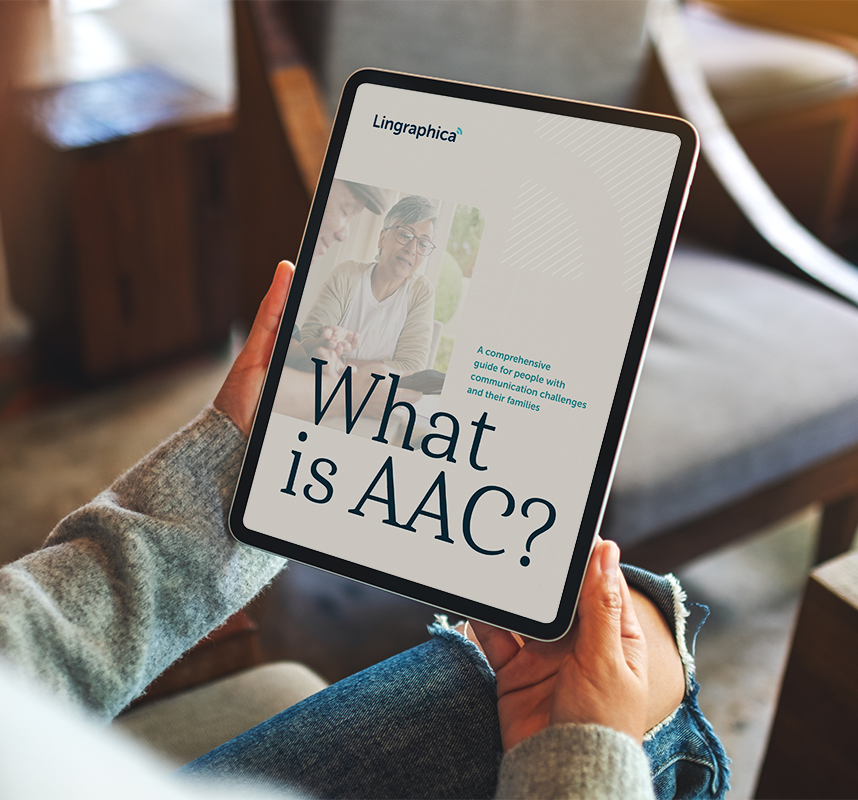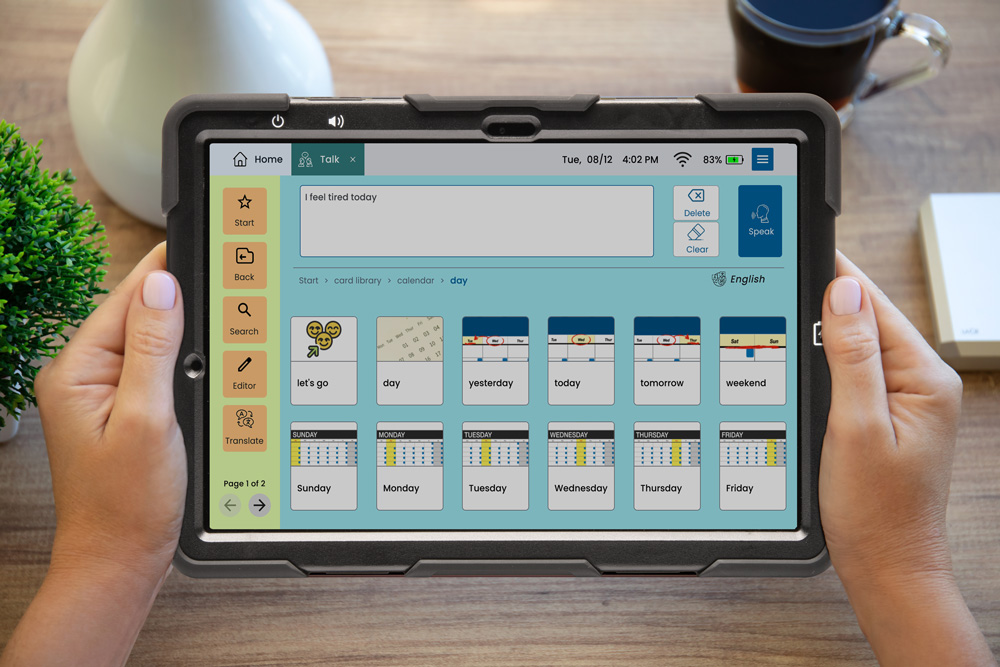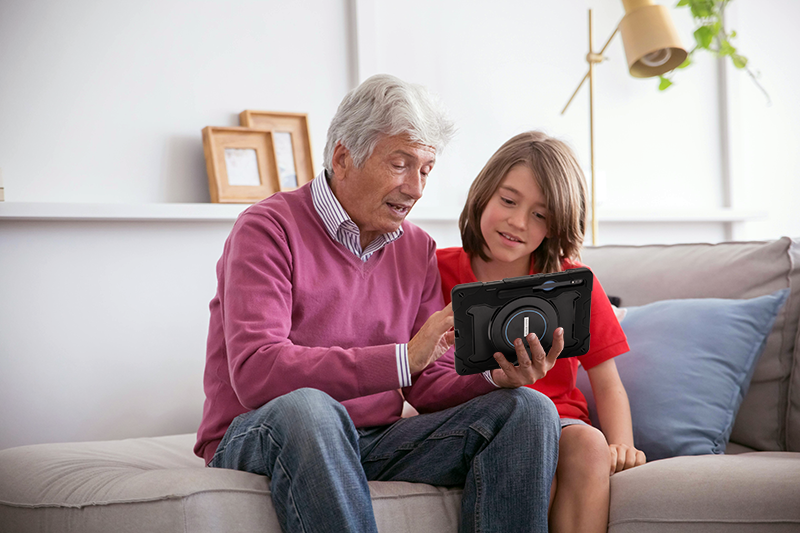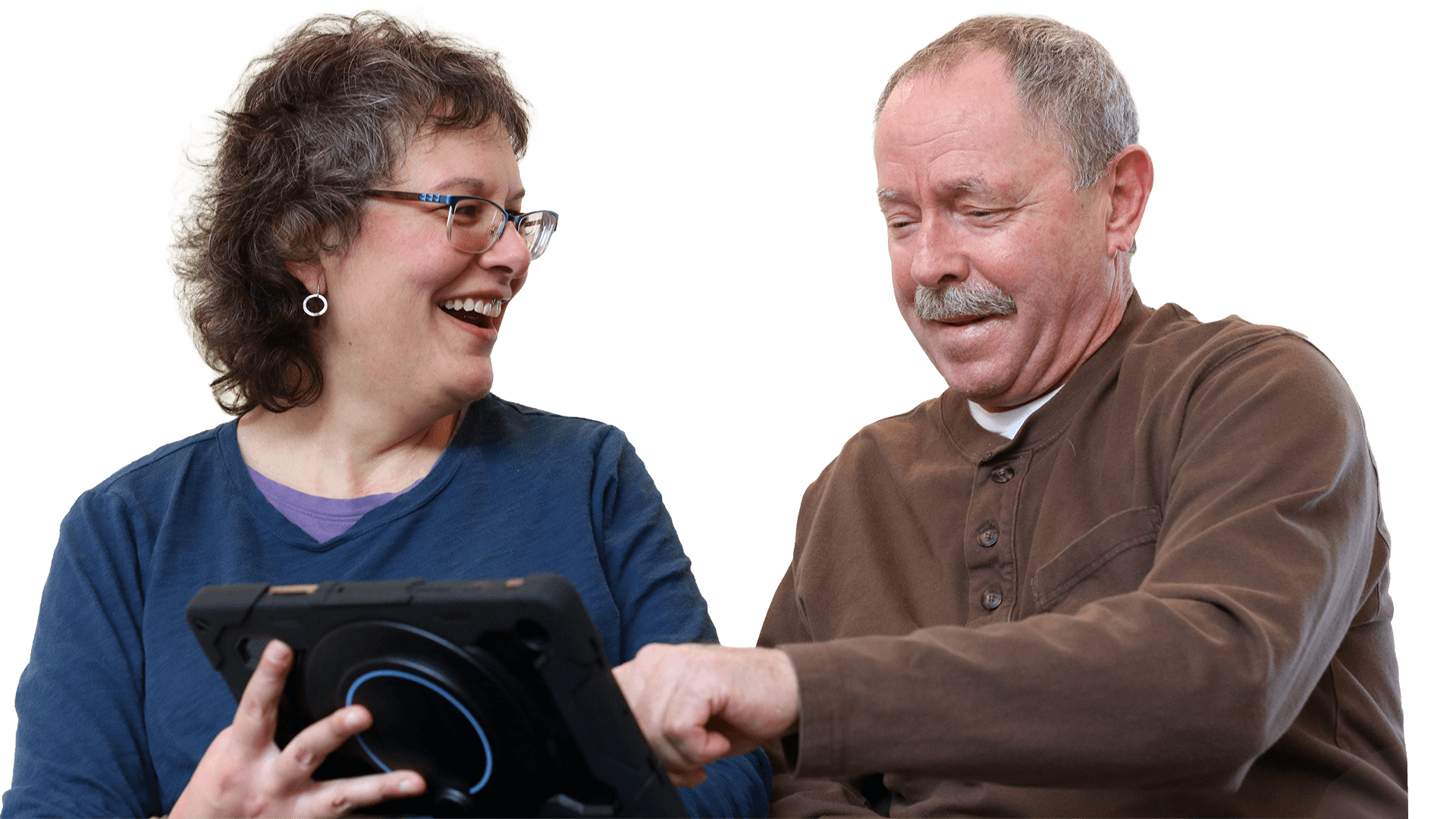
Social Distancing Does Not Mean Social Isolation
Many of us find ourselves in uncharted territory with recent measures – like social distancing and lockdowns – taken to combat COVID-19. However, for many people with aphasia, being socially distant is common and the struggle to connect with the outside world is a familiar challenge.
The communication challenges present in people with aphasia often lead to social isolation. Left unchecked, this could develop into varying degrees of depression. That’s why it’s critical to find ways to connect with others – especially when your loved ones aren’t close-by.
Here are four things you and your loved one can do to stay connected to the outside world.
1. Make a phone call using a communication device.
Many take for granted being able to pick up the phone and call someone. When your ability to communicate is compromised, this is often not possible. That’s why focusing on practical life goals, i.e. making a phone call, is an area of emphasis when using a high-tech communication device.
Working with a care partner, you can create custom words and phrases that will likely be used in a phone conversation. Once the custom phrases are created, it’s just a matter of working up the courage to make a call. And the reward is worth the effort. Staying connected to the outside world can make all the difference.
2. Connect with your speech therapist while practicing therapy.
For those looking for a way to continue speech therapy with speech-language pathologist (SLP), TalkPath Therapy is a wonderful option. TalkPath Therapy is a free, online therapy platform that enables you to practice thousands of speech, language, and cognitive exercises from the comfort of your home.
After creating an account, you can coordinate with your SLP. This will enable you to practice exercises that are assigned to you. After completing that batch of exercises, your SLP can review your work, make any necessary adjustments to the exercises or difficulty level, and offer another assignment. This passive form of communication can help you stay connected without the added pressure of verbally communicating.
3. Virtually connect with other groups.
Although you may be confined to your house, or at least banned from large gatherings, that doesn’t mean you have to cut off all ties to the outside world. There are many virtual aphasia support groups to which you can connect.
Take, for example, a new program being launched by the Aphasia Recovery Connection (ARC) and Lingraphica. Virtual Connections is a daily, virtual meet-up for people with aphasia and their caregivers. If you simply want to see other people and engage, join the day’s virtual meeting and know that you are not alone. More information to come! In the meantime, contact one of our communication specialists to learn more.
4. Stay up to date on current events.
Understanding what is happening in the world is another way people stay connected. However, for people with aphasia, traditional news outlets may not be adequate in addressing your communication changes. TalkPath News is an online news source designed specifically for people with aphasia. If you want to receive abbreviated articles that are presented in an aphasia-friendly manner, visit TalkPath News and hear about the latest news updates.
You can also join the Talkpath News Group on Facebook and discuss articles with other members of our community.
Social distancing does not mean you have to be socially isolated. There are many ways to use technology to connect with the outside world. These four ideas are a starting point.
About Contributor
Lingraphica helps people with speech and language impairments improve their communication, speech, and quality of life. Try a Lingraphica AAC device for free.



